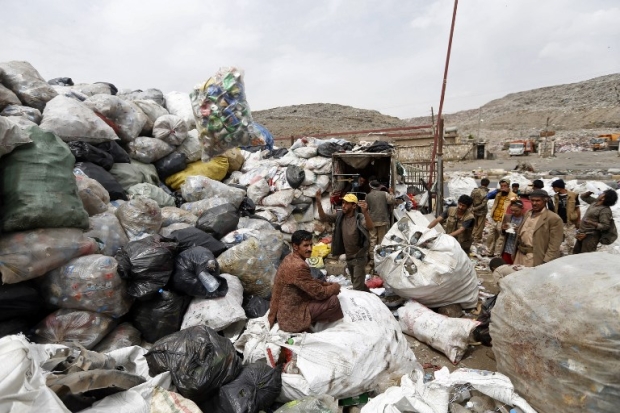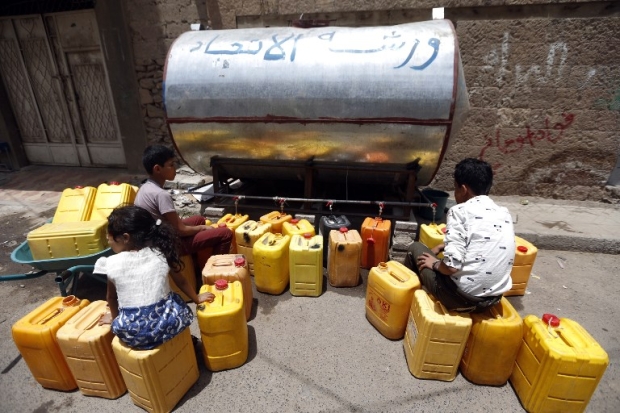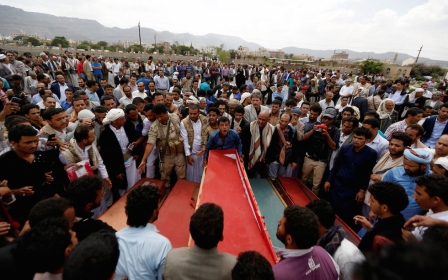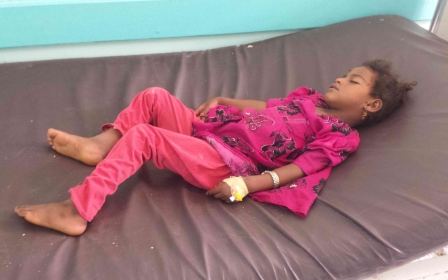Yemen: From 'Arabia Felix' to 'death in the time of cholera'
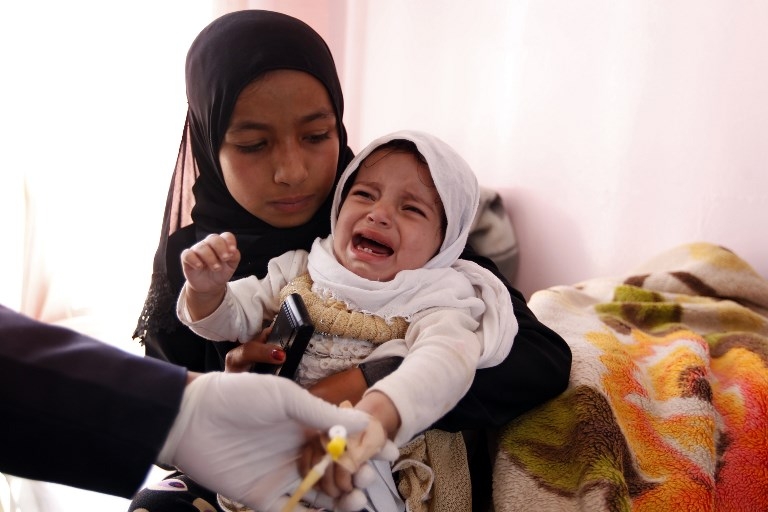
Imagine being nine-months pregnant with your first baby, happy but anxious at the life-changing event that awaits you. Now imagine that instead of preparing your baby’s new clothes and bedding, your sole objective is to stay alive to be able to bring the baby into the world.
Picture Samia, a 25-year-old woman in today’s war-torn Yemen. She is pregnant with her first child but struggling for life after having contracted cholera, an acute diarrheal disease that can kill within hours if left untreated.
Right now, nearly one person in Yemen dies every hour from cholera
Cholera is most common in places with poor sanitation, overcrowding, war and famine. All these are now everyday characteristics of life in Yemen, today the scene of conflict, displacement, food insecurity and the breakdown of health and sanitation systems.
By way of comparison, cholera was prevalent in the US in the 1800s, before modern water and sewage treatment systems eliminated its spread by contaminated water. Only about 10 cases of cholera are reported each year in the US and half of these are acquired abroad.
Curbing the monster
Samia is one of an estimated 1.1 million malnourished pregnant women in Yemen, with a body immunity that has dropped as a result of the lack of adequate nutrients intake and a level of anxiety that has spiked with the conflict.
Samia, who was scared, tired, underfed and with no access to proper hygiene, was therefore an easy target for cholera. Pregnant and breastfeeding women are especially vulnerable to malnutrition, and those weakened by the nutrition crisis are more prone to infections, including cholera. Pregnant women who contract cholera have a higher risk of developing dangerous or even fatal complications.
So what can be done to curb this monster? First we, humanitarian actors, must all recognise that pregnant and lactating women need to be prioritised during our humanitarian response. We should ensure they have adequate medical care throughout their pregnancy, good nutritious food, and most important, the possibility to keep a decent level of hygiene and cleanliness.
Does this sound too easy? It is. But unfortunately it becomes a difficult mission in situations of acute crisis, such as in Yemen.
It is established that cholera is often spread through contaminated food or water. The United Nations Population Fund is the UN agency that works on promoting reproductive health, including among pregnant women, by supporting midwives and mobile medical health clinics that can reach people in their own homes, and can screen and refer malnourished mothers and babies in areas that are difficult to reach.
Women therefore get the right nutrition counselling and advice on hygienic habits that can be sustained even in dire situations, in addition to receiving items such as soap and sanitary napkins. Women who know how to avoid getting cholera through basic steps and hygiene products will resist the disease.
Back to basics
It is mind-boggling that in the era of medical advances and daily scientific breakthroughs, we are faced with the challenge of ensuring people can wash their hands and cook their food safely. For preventing cholera is simple: washing hands in clean water, cooking food well and drinking plenty of clean water.
Women, who are often the most resilient people in times of crises, can play a critical role in controlling cholera’s spread because they are traditionally tasked with food preparation. Cholera is often spread through contaminated food or water. It takes gestures as simple as boiling water before using it or adding a few drops of sanitiser in a bowl of water to help prevent cholera.
Samia was very lucky to have been able to reach a midwife trained by UNFPA in a reproductive health clinic supported by UNFPA. She went home carrying hygiene and sanitising items in her bag. Many others are not that lucky.
The death toll in Yemen was already high before cholera topped the list of disasters hitting what was once happy Arabia, or “Arabia Felix”. It is our duty now, the humanitarian agencies, to ensure that basic steps are possible to prevent the further spread of this epidemic.
- Anjali Sen is the United Nations Population Fund (UNFPA) Representative in Yemen. Before joining UNFPA in May 2017, Sen worked at International Planned Parenthood Federation (IPPF) as regional director for the South Asia Region, since 2009 and previously held several senior leadership positions in the Indian government.
The views expressed in this article belong to the author and do not necessarily reflect the editorial policy of Middle East Eye.
Photo: A Yemeni doctor administers a test on a child at a hospital in the capital Sanaa in October 2016 (AFP)
Middle East Eye propose une couverture et une analyse indépendantes et incomparables du Moyen-Orient, de l’Afrique du Nord et d’autres régions du monde. Pour en savoir plus sur la reprise de ce contenu et les frais qui s’appliquent, veuillez remplir ce formulaire [en anglais]. Pour en savoir plus sur MEE, cliquez ici [en anglais].



